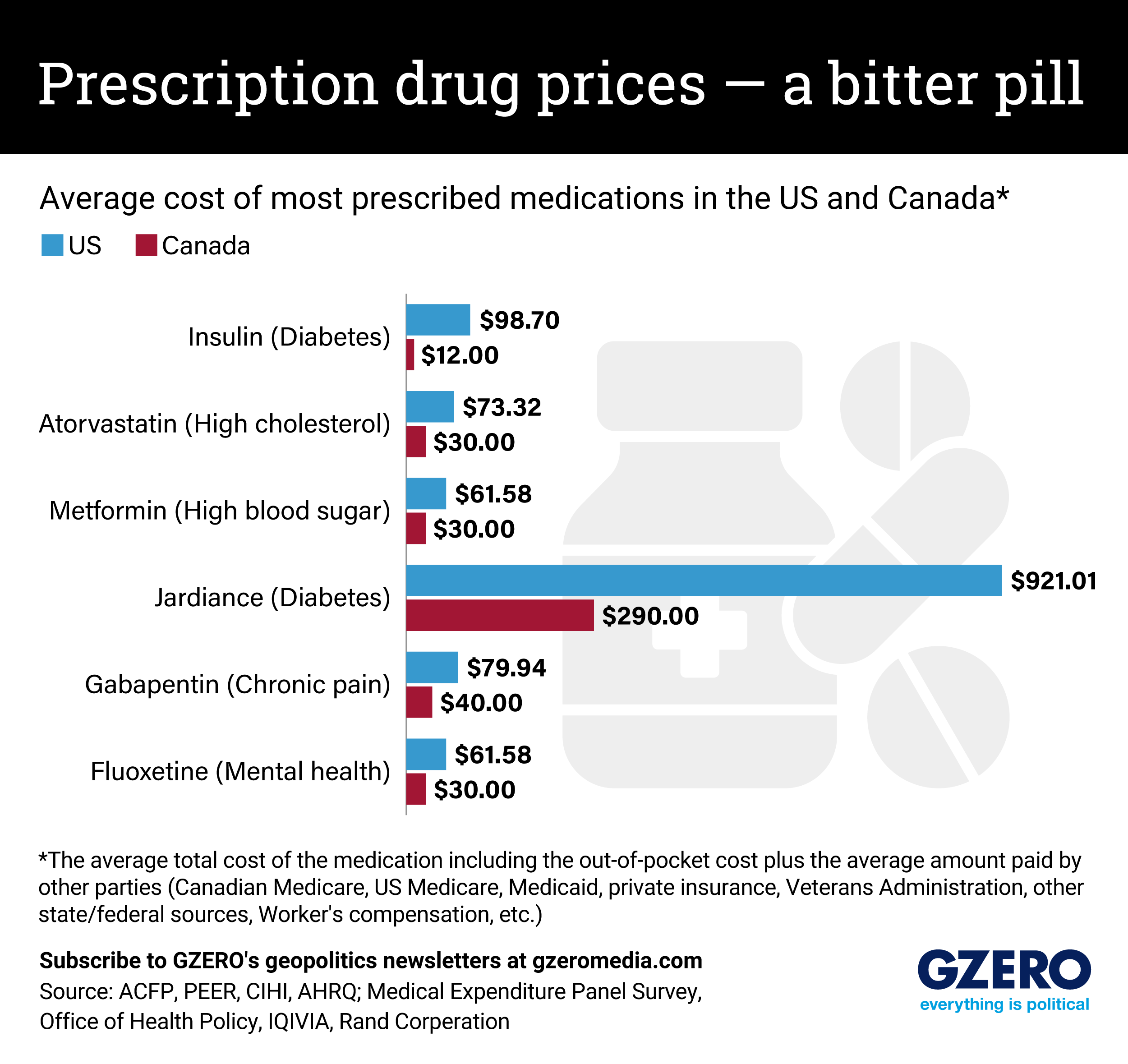January 11, 2024
It’s a hard and pricey pill to swallow: US prescription drugs are far more expensive than those in Canada, where the government controls drug prices and can refuse to pay if they are deemed to be too high.
The lobbying power of the US pharmaceutical industry, meanwhile, helps drug companies set the rules. The US also has stronger patent protections than most, allowing manufacturers to dominate the market unopposed for longer.
Finally, the starkest contrast between the two is insurance. The US healthcare system is largely private, with multiple players deciding how drug costs will be shared by consumers. This contrasts with Canada's pride and joy, its national healthcare program, which is a centralized, publicly funded system, allowing it to negotiate prices more effectively (varies by province, and there is no national pharmacare program, but one is being debated).
The Biden administration has made lowering the prices of the most popular – and expensive – prescription drugs a centerpiece of his reelection campaign. Eliquis and Jardiance both made the list as well as many others that treat diabetes, heart disease, and other chronic illnesses that will be subject to price negotiations that will take effect in 2026.
The graph above shows the total cost of some of the most prescribed prescription drugs in the US and Canada. Total cost includes out-of-pocket costs and the contributions of insurance carriers.
More For You
Most Popular
Think you know what's going on around the world? Here's your chance to prove it.
Senator Flavio Bolsonaro, son of Brazil's former President Jair Bolsonaro, speaks during an interview with Reuters in Brasilia, Brazil, on December 19, 2025.
REUTERS/Adriano Machado
Three years ago today, supporters of former Brazilian President Jair Bolsonaro stormed Congress and other buildings in Brasília. With Bolsonaro in jail, though, and the election coming in October, his successor as leader of Brazil’s right is unclear.
The number of Japanese births continues to plunge, and is set to fall short of the government’s most pessimistic targets this year. That will hit the population, and exacerbate the economic challenges that Prime Minister Sanae Takaichi faces.
© 2025 GZERO Media. All Rights Reserved | A Eurasia Group media company.
